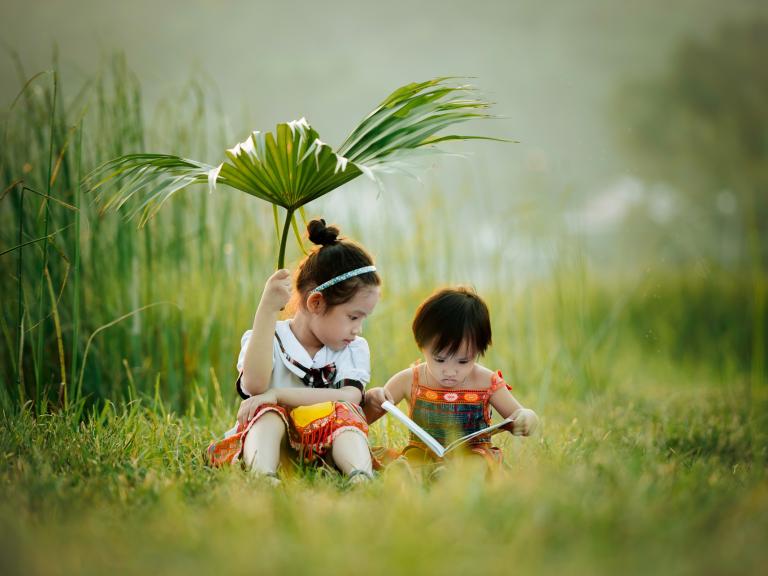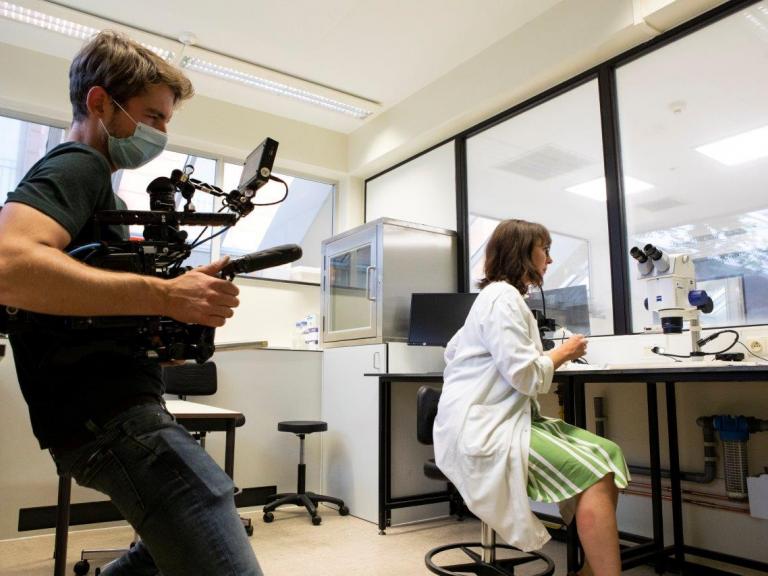-
Last updated on
-
Last update changes
Modified on 9 June 2021

© GPE/Guy Nzazi
In Belgium, we know relatively little about the rich African past before colonisation. Of course, everyone knows the ancient Egyptian civilisation. But who has ever heard of the ancient Ethiopian kingdom of Aksum? And as for the history of Sub-Saharan Africa, we are generally even more in the dark.
Kingdom of Congo
Strangely enough, the young Congolese – 61 years after independence – do not seem to be very aware of their past either. ‘Congolese history really begins long before colonisation,’ says Dominique Gillerot, delegated administrator of the Belgian NGO CEC (Education and Culture Cooperative). ‘At that time, Congo had a well-developed kingdom that was perfectly adapted to the climate with its rainy and dry seasons,’ adds Prof. Elikia M'Bokolo, an eminent historian at the University of Kinshasa. He is also a member of the Belgian parliamentary commission that is looking into the colonial past. ‘The king represented political power, but was also ‘master of technology’ (forging, agriculture, etc.). He also made sure the community ran smoothly through his contact with the ancestors.’
Along with a series of Congolese partners, including Prof. M'Bokolo, CEC started the project Bokundoli (= to search, look into) to brush up the teaching of history in Congo. ‘The minds can be decolonised,’ says Gillerot. A correct knowledge of the past provides an insight into how the Congolese can tackle current challenges, as well as contributing to more active citizenship.
Agency
‘We have to get rid of the idea that Congo is lost,’ says Prof. M'Bokolo. ‘For example, we are currently dealing with raids from Rwanda. But such invasions took place regularly in the past! After all, Congo is a very open country that is easy to penetrate. Yet in the past we have always had the ‘agency’ to deal with it, meaning the will and ability to act effectively. External affairs can also provide opportunities, such as new resources. In short, a knowledge of the past can reassure young people that they can handle the situation. It can push them to do it better and more powerfully.’
M'Bokolo touches on another example. ‘The Congolese who were taken to America as slaves often put themselves forward as resistance fighters. In Brazil, Ganga Zumba revolted, which led to the Republic of Palmares (17th century). In Cuba, the slave Carlota rebelled (1830). The radical refusal to submit is very typical of the Congolese rural population. The Congolese were therefore never just spineless ‘things’ in the hands of the colonists.’

“Arts and History” working group in Kinshasa. Historians and artists
meet on Congo's history – Dec. 2019, co-organised by CEC-Africalia. © CEC
‘History and Citizenship’ platform
The Bokundoli project was inspired by a large-scale project by the UN Culture and Education Organisation UNESCO that rewrote African history through African eyes, with the collaboration of Prof. M'Bokolo among others. It is also in line with a charter of the African Union (Khartoum 2006), which aims to sharpen the ‘African historical consciousness’ of young people.
In the meantime, a great deal of work has been done. Gillerot: ‘The planned 5 modules are as good as finished: migration and old states, slavery, colonisation and independence, resistance to colonisation, contemporary history. The digital application that hosts the content and illustrations is also nearing completion. In principle, we could test the app right now with a group of history teachers, but the current lockdown in Congo put a stop to it. Hopefully it will work out later this year.’ Eventually, the application should grow into a true ‘History and Citizenship’ digital platform, intended for both specialists and the general public.
In a consultation between artists and historians, more accessible forms were devised to spread knowledge of history. This led to a rap song, a radio play, a dance show and a board game, among other things.
‘Bokundoli is a pilot project,’ says Gillerot. ‘It's only being tested in a limited number of schools. But the intention is that it will be generally used in Congo at a later stage. We hope to generate interest with the Congolese Ministry of Education and with institutions such as UNESCO.’
Along with other organisations, CEC also aims to disseminate tools that can strengthen the current reform of the curricula on the colonial past in French-speaking Belgium. Bokundoli's teaching modules could certainly be useful there.
Today (January 12, 2021), Bokundoli's various partners are in deep mourning after the sudden death of Prof. Jacob Sabakinu, its initiator along with Professors M'Bokolo and Mabiala. They will courageously continue the work, as a tribute to their colleague and friend.
The Bokundoli project is supported by the Belgian Development Cooperation, Wallonia-Brussels International and the King Baudouin Foundation.
How do the Congolese youngsters perceive the colonial past?
M'Bokolo: About 10 to 20 years after independence, the fixation on the colonial past diminished. The realisation grew that it was over, too long ago. Today, young people are focusing on the Far East and South America. They notice how countries like India, China, South Korea, Japan and Brazil managed to rise from a poor country to a prosperous nation. So you don't necessarily have to follow the Western model of development. The ex-colonisers are considered as ‘nokos’ (= uncles): people you can discuss with and learn from. The term ‘noko’ also stands for a number of male virtues: openness of mind, creativity, the will to fight, strength.
History teaching days - October 2021, Kinshasa
Improving the teaching of the history of the African continent and the Congo. Congolese and Belgian actors from research, teaching and civil society meet.
Based on the Bokundoli programme, the University of Kinshasa, in collaboration with CEC and ARES (umbrella organisation of the Belgian French speaking universities), will organise the History Days on 29 and 30 October 2021 in Kinshasa. The aim of these days is to invite researchers and teachers of History from Congo and Belgium to reflect, within the frame of the Bokundoli programme, on how to improve the teaching of the history of Africa and the Congo and how to stimulate pedagogical innovation in this field.
The organisers wish to place at the heart of these meetings the debates currently taking place in Belgium on the common history of both countries. It will be a question of reflecting on the integration of these debates into the current teaching of history in Congo. The subject is all the more crucial as we know the weight of history on collective representations and more generally on contemporary international relations (especially bilateral).
Although the initiative is primarily aimed at history teaching in Congo, it will no doubt also prove very useful for participants from the North, as very few people really know the perception of colonial history held by the Congolese themselves.
More on People

Violence against women must be eliminated
Combatting violence against women is an absolute priority in Belgium's domestic and foreign policy.

Undiminished focus on children's rights
Children's rights are a spearhead of Belgium's domestic and foreign policy.

Documentary ‘Besmet’ (Infected) on Canvas: more than 100 years of research for global health
The Institute of Tropical Medicine is conducting groundbreaking research to optimise international healthcare. Take a look behin...
